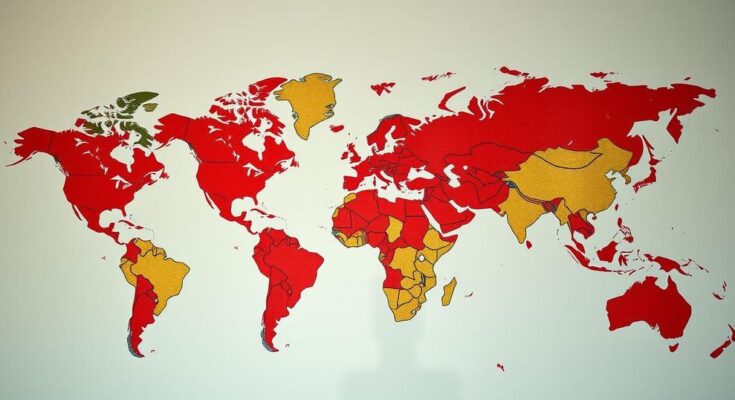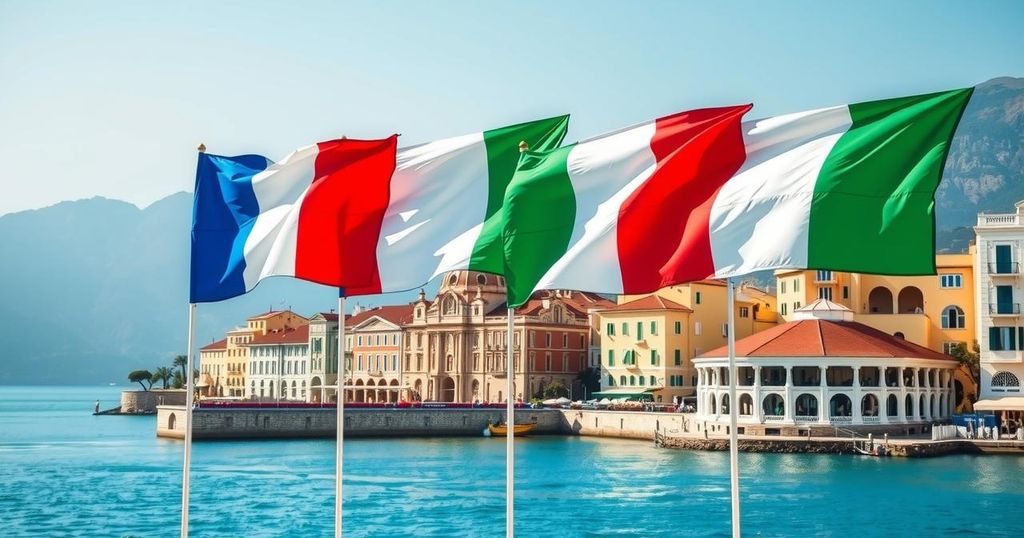Türkiye’s mediation between Somalia and Ethiopia exemplifies effective diplomacy, showcasing its ability to turn conflict into dialogue and foster stability in an unpredictable global landscape. This engagement highlights Türkiye’s broader commitment to international peace and demonstrates its strategic role as a mediator in complex geopolitical issues.
In an era marked by escalating tensions and unresolved disputes, Türkiye’s role as a mediator, particularly between Somalia and Ethiopia, exemplifies effective diplomacy that bridges divides. The resolution achieved through Türkiye’s intervention is not merely a localized triumph; it embodies a commitment to fostering stability within a volatile global context. This mediation highlights Türkiye’s potential in promoting constructive dialogue in international affairs.
The conflict between Somalia and Ethiopia arose primarily from Ethiopia’s lease agreement concerning Berbera Port in the jurisdiction of “Somaliland.” Somalia viewed this action as a direct affront to its sovereignty. Somaliland, an unrecognized territory in northwestern Somalia, possesses its own governing structures but is still internationally regarded as part of Somalia. Without the mediation of a neutral party, a misunderstanding of this nature could have escalated into a protracted conflict, posing a significant threat to stability in the Horn of Africa.
Türkiye’s commitment to fostering dialogue culminated in the formulation of the “Ankara Declaration,” which illustrates its diplomatic philosophy of mutual respect and constructive engagement. By facilitating conversations between Somalia and Ethiopia, Türkiye ingeniously leveraged their shared economic and regional interests. For Ethiopia, access to the port represents a crucial trade route, while Somalia relied on Türkiye’s established relationships, characterized by ongoing humanitarian support, to ensure respect for its sovereignty. The establishment of an equitable framework allowed for a compromise that successfully averted a potential crisis.
This mediation between Somalia and Ethiopia is part of a broader trend of Türkiye’s involvement in international conflict resolution throughout the past decade. Notably, its contributions during the Ukraine war provided a significant platform for dialogue amid global tensions. Through initiatives like the Black Sea Grain Initiative, Türkiye mitigated a potential food crisis by ensuring the continuation of agricultural exports from Ukraine amidst ongoing hostilities.
President Recep Tayyip Erdoğan has been instrumental in pursuing an assertive foreign policy that positions Türkiye as a capable mediator. His administration aims to showcase Türkiye’s versatility in navigating complex diplomatic landscapes. Hakan Fidan, now the Minister of Foreign Affairs and former Director of the National Intelligence Organization, has also been central to Türkiye’s initiatives, highlighting the multifaceted strategy driving its diplomatic engagements.
Türkiye’s role in the Syrian civil war further exemplifies its commitment to addressing intricate international issues. By hosting negotiations, alleviating violence, and providing refuge for displaced individuals, Türkiye has significantly contributed to regional stability and humanitarian awareness. These efforts underscore its dedication to finding viable solutions to prolonged conflicts.
The agreement between Somalia and Ethiopia underscores Türkiye’s aptitude for transforming conflict into dialogue. However, sustaining the essence of the Ankara Declaration presents its own set of challenges. Ethiopia’s dependency on Somaliland’s port remains a strategic necessity, while Somalia’s concerns regarding territorial integrity are likely to persist. Continued Turkish involvement, characterized by careful navigation through existing tensions, will be critical in maintaining momentum.
As Türkiye expands its role on the global diplomatic stage, it faces the challenge of balancing influence with impartiality. A mediator’s credibility can falter amid complex conflicts, where perceptions of bias can influence outcomes. While Türkiye has made substantial strides in promoting trust, its engagement in diverse disputes will constantly test its ability to uphold neutrality.
A diplomatic approach centered on dialogue and pragmatic solutions distinguishes Türkiye’s mediation efforts. Its ability to foster cooperative relations, whether addressing the Somali-Ethiopian dispute or tackling broader conflicts such as those in Ukraine and Syria, highlights the importance of constructive engagement in international relations. As expressed by Dr. Kaan Devecioğlu, Coordinator of North Africa Studies at ORSAM, “Türkiye’s neutral, constructive, and inclusive approach was pivotal to achieving this success.”
Through its consistent approach to international diplomacy, Türkiye is establishing a legacy in conflict resolution. While significant challenges remain, its efforts in peacebuilding, particularly in the Horn of Africa, exemplify that dialogue serves as an essential tool for cultivating stability in an increasingly fragmented global landscape.
Türkiye’s momentous strides in international mediation come during a period of heightened global tension and conflict. By navigating the complex dynamics between nations, particularly in the Horn of Africa, Türkiye seeks to position itself as a reliable facilitator of peace. Situations like the Somalia-Ethiopia dispute illustrate how an unrecognized territory’s geopolitical maneuvers can threaten regional stability. Türkiye’s historical involvement in conflict resolution, coupled with its strategic partnerships and humanitarian initiatives, reflects its commitment to fostering dialogue and ensuring humanitarian integrity on a broader scale.
In summary, Türkiye’s diplomatic engagements, particularly in mediating the conflict between Somalia and Ethiopia, underscore its rising influence in international relations. Through balanced dialogue and fostering cooperation, Türkiye effectively addresses contentious issues and averted further escalation of conflicts. The enduring challenge remains to maintain impartiality and credibility in its mediation efforts as it navigates the complexities of global diplomacy. Ultimately, Türkiye’s proactive stance on diplomacy offers a compelling model for conflict resolution, promoting the significance of dialogue as a pathway to stability in an increasingly fractured world.
Original Source: www.dailysabah.com




